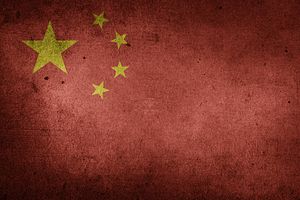Diplomats the world over are familiar with the basic tenet of Chinese foreign policy: non-interference. For China, that means any issues surrounding Taiwan, Tibet, Xinjiang, the South China Sea, and a growing number of other areas that China claims as integral parts of its territory, are purely domestic in nature. These are China’s first-order foreign policy concerns, and the bellicosity of the country’s “wolf warrior” diplomats ensures that all are aware of its intentions in this regard.
Then there are China’s second-order foreign policy objectives: think its representative to the G-20 Financial Stability Board, for one. These are matters that ostensibly have little or nothing to do with Beijing’s “red lines,” but which it is in China’s interests to have a position on, as the ability to lend a voice on the more low-key issues is a hallmark of exercising global leadership – something Beijing is keen to show it is capable of. The problem facing the Chinese foreign service and its interlocutors is that the logic underpinning the country’s new globalism is far from clear cut.
China has not been waiting around with its ambition to take up an enhanced role in global governance, and the pandemic has catalyzed its emergence. Over the last 12 months, as well as exporting more vaccines than anyone save the European Union, China has seen its candidate elected to the International Law Commission, a feat that the U.S. failed to emulate, and has retained a deputy director-general to the World Trade Organization, following Ngozi Okonjo-Iweala’s long-frustrated appointment to the top job in May 2021. Meanwhile, China continues to head three of the 15 principal agencies of the United Nations and holds deputy positions in nine others. Note that these examples only document China’s rise within the U.N. and the Bretton Woods system and do not account for the roles its diplomats occupy within the parallel financial and legal institutions Beijing has brought into being over the last decade.
There is an emerging school of thought that claims these examples demonstrate “international leadership with Chinese characteristics.” This is intended to be a conceptual framework that China’s diplomatic corps, its interlocutors, and policy analysts alike can use to understand, for instance, how ambitious Beijing intends to be in providing alternative financial and legal institutions to states that choose to participate in its Belt and Road Initiative or the extent to which it wants to shake up international law.
Traditionally, one might look to a country’s academic and think tank communities to understand its foreign policy goals. However, “international leadership with Chinese characteristics” provides a poor prism through which to view China’s approach to its second order foreign policy priorities. In this community, China’s leading role on the world stage – which is contextualized through sweeping references to glorious moments in the country’s history – is a function of its culture and values, its tradition of meritocracy, and the concept of tianxia: the antithesis of the Westphalian system that emphasizes the primacy of the state in deciding what happens within its own borders. This concept is also, somewhat inconveniently, the antithesis of non-intervention. What is more, little attention is paid by such scholars to how China got into this position or the decisions Beijing took concerning matters in third countries unrelated to its core principles of developing its credibility as a state capable of exercising global governance.
China’s persuasions are certainly becoming more prevalent in global governance, but not in the ways its academics think or to the extent they assert. For a start, China is not making the progress that one would expect of a superpower in several key areas. By way of example, China has more multinational corporations than any other country and provides the most financial assistance to developing economies, yet the renminbi currently accounts for just 2 percent of all international payments. China might be on top, but it is still playing by someone else’s rules, and those that trade with it still prefer to put their faith in the convertibility of the greenback. China’s think tankers explain that by claiming that China is being an “exemplary” or “facilitative” leader in international affairs as opposed to a hegemon – and if China aspires to global governance at all, it does so as primus inter pares.
In short, “international leadership with Chinese characteristics” is a model that neither satisfactorily explains China’s rise nor how it is likely to behave now that it occupies numerous leadership positions in international institutions. Its proponents identify that there can be conflicts between China’s global governance efforts and how it behaves domestically – take the case of the country’s support of liberal free trade when attending international forums and indicated by its application for membership of the Comprehensive and Progressive Agreement for Trans-Pacific Partnership, which runs counter to its more dirigiste approach to domestic economic management – but has not yet proposed viable solutions to these conflicts.
China’s second-order foreign policy wants and needs are harder to pin down than those issues where territory is up for dispute. One can speculate that this is because Beijing is not 100 percent sure what they are either. China may now be a decision-maker in global affairs, but explaining how it got there and how it can make the most of this situation will require a lot more work by Chinese scholars.
































